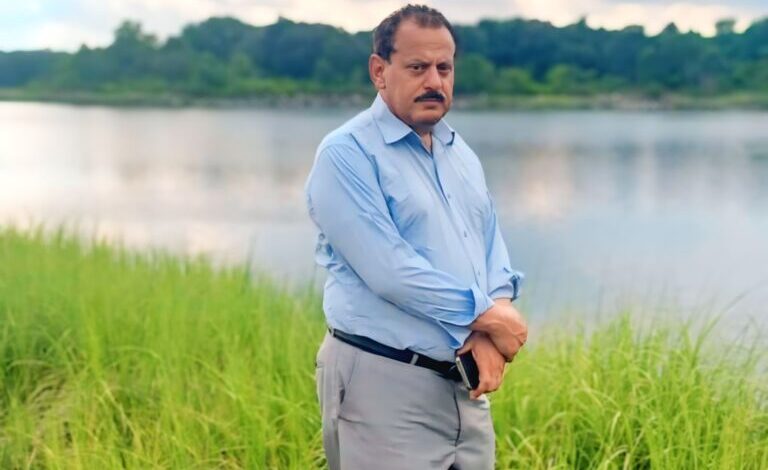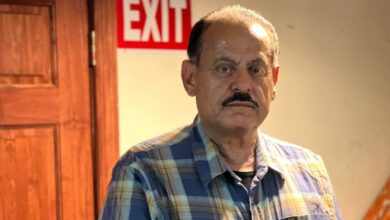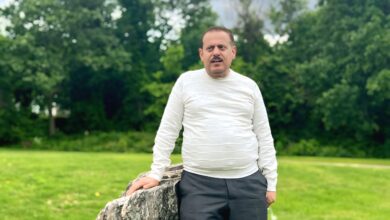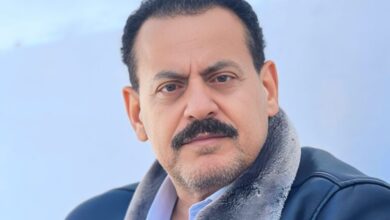A Judiciary that Commits Crimes

Yemeni mp
Ahmed Saif Hashed
I graduated from the Faculty of Law at Aden University in 1989. According to my specialization, the Personnel Department of the Ministry of Defense assigned me to work in the Department of Military Judiciary. I still remember my first day reporting there, accompanied by my cousin, Abdo Fareed Hashed.
As we were climbing up to Al-Fat’h—the site of the Ministry of Defense, the Military Judiciary Department, and Military Intelligence—he said to me, “Now throw your certificate, and everything you’ve learned, behind your back. Things here are different.”
I dismissed his words at the time, considering them exaggerated anxiety. I replied that what he said was unreasonable. Yet his remark lingered in my mind—until I discovered what I could never have imagined.
At the time, Mohsen Hussein was Director of the Military Judiciary Department and head of the Military Court. I never felt at ease with him. His coarseness and perpetual scowl weighed heavily on me. At times, I even felt—as if in delusion—that our relationship resembled more that of a prosecutor with a defendant than that of a superior with a subordinate. Though he never wronged me personally, nor acted in a way that justified such feelings, I could not shake off the unease.
Perhaps it was a matter of chemistry—how with some people I fail to connect, while with others I feel warmth and affection. Maybe subconscious causes played a role. Or maybe it was the rigidity of his dealings with me, his stiff and monotonous formality that left little room for human warmth.
But the deeper reason for my aversion was the harsh sentences he passed on the accused. I was never at peace with those judgments, which I saw, in many cases, as unjust and excessively cruel. I sympathized with the defendants under investigation, seeking any point that might lighten their burden, knowing all too well that severe sentences awaited them—sentences unchecked by any appellate or supreme court to review, moderate, or overturn them.
Among my closest colleagues was my friend, the noble Bedouin Monasar Al-Wahedi: a courteous, stout-hearted administrative officer of impeccable character. There was also my colleague, the investigator Ashraf Wali Mohammed from Aden, who seemed to have Pakistani origins but was distinguished by his Adeni kindness and genuine warmth.
Political shifts cast their shadows over both of them. After unification, Ashraf was marginalized into oblivion. I do not know where he is now—whether still alive or passed on. As for Monasar Al-Wahedi, he left Sana’a after the 1994 war and returned to Aden, where he lived through the plight of the South and its people until he retired—or was forced into retirement. He was the very model of an ideal cadre, destined—had there been justice in merit and opportunity—for a distinguished leadership role or high-level administrative training. Yet politics betrayed many of the competent, the free, and the sincere who lacked patrons.
Monasar was for me an exemplar of virtue, chastity, tolerance, and moderation—devoted to his work, his profession, and his belonging to the greater homeland. He was warm and helpful with people, never letting differences in opinion sour his friendships. Though I often disagreed with him, he always remained a great, wise, noble man, close as well to God, the radiant, forgiving, merciful, and compassionate.
Monasar Al-Wahedi was my dear neighbor in Sana’a. Once, when I was penniless, he even lent—or perhaps borrowed on my behalf—the price of a grave for my late aunt, Saeeda.
Before taking up the role of investigator, I first worked in the judicial archive of the Military Judiciary Department, studying the role of the investigator, the process of investigations, and the procedures of trial. Though my time in the archive was brief, the benefit was immense. It gave me not only a foundation for investigative work, but also a comprehensive grasp of the military judiciary as a whole.
In the archive, I found both summaries and details—knowledge that clarified the scene for me with greater precision. My experience there felt like entering a vast, deep cavern, exploring, learning, and gathering more and more understanding. Yet the most important part of that journey lay in discovering the injustices that passed beneath the roof of the judiciary—or were even codified through its verdicts.
This was not unlike the path of Sultan Za’ben in criminal investigation in Sana’a—celebrated by what was called the Presidential Office for his deeds, and later finding himself a leader in what was called the National Security Agency. They, who once demanded its dissolution, now searched within it for their petty selves, intruding into people’s privacy, and—worse still—using it as a tool of subjugation, intimidation, and the fabrication of crimes.
The archive of the Military Judiciary—kept under the charge of “Shamroukh”—was orderly, classified, and neatly arranged. One could find what one sought in the shortest time possible. The administrative system inherited from the British in the South, including within the Ministry of Defense, was precise and efficient, unlike the Ottoman legacy in the North, such as the archive of the Military Judiciary in Sana’a. The difference between the two systems, both in form and substance, was vast.
Among the files I read was a case classified under treason against the homeland. Its protagonist was a young man, probably under twenty. The events took place in the border region between Al-Madharibah and Al-Waziyah. The young man, who lived in the South, had relatives who had fled to Al-Waziyah in the North. It was there that a southern intelligence agency recruited him to assassinate one of his kin.
I can no longer recall his full name, but one of his three names was Tareesh. He had been tasked with poisoning his uncle—or perhaps his maternal uncle. They gave him poison to put in the man’s water. But the young man hesitated, wavered, invented excuses.
Pressed with threats and promises, he later told them that he had indeed put the poison in the water—but then noticed it turn gray, and so refrained from giving it to his relative. When they doubted him, realizing he would not carry out the deed—and perhaps suspecting he might flee to his relatives—they interrogated him, tortured him, and put him on trial for high treason. He was sentenced to ten years in prison.
This case was a shock to me.
It made me doubt the very essence of justice, and left me with the feeling that grave injustice lurks everywhere. It revealed to me that security and intelligence work, in its essence, is often sordid and a threat to justice—especially when its goals are twisted from their purpose. Its custodians and decision-makers, more often than not, are criminals themselves—whether dressed as men of security or cloaked as men of politics.
* * *






